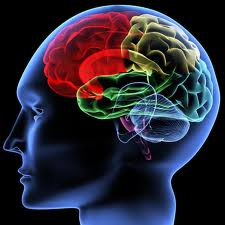 A recent US study has provided yet more evidence of why hypnotherapy works so amazingly well.
A recent US study has provided yet more evidence of why hypnotherapy works so amazingly well.
Some people doubt whether a hypnotic approach is effective. It is often misunderstood or misrepresented, especially by the media. Well, research studies have now shown that hypnotherapy works by having an effect on the brain that can be assessed scientifically.
Stanford University has carried out a study with volunteers who were placed in hypnosis and told they were looking at coloured objects. When they were studying the objects, there was a boost in blood flow to the portion of the brain that registers colour, while in reality the objects were black and white. This was as a direct result of hypnosis, providing scientific evidence to support the concept that hypnotherapy processes do, indeed, influence the way the brain processes information.
This breakthrough research strongly supports the use of hypnotherapy for those, for example, seeking to manage their own pain or anxiety. It also suggests the potential for hypnotherapy to improve the general functioning of mind and body, with or without additional treatment.
There are many case studies demonstrating how outstanding changes can be achieved following treatment under hypnosis. Thought processes can be efficiently altered, making it possible to significantly improve quality of life. So, for instance, sufferers of fears of phobias can be empowered with the knowledge that the mind can be tuned through hypnotherapy to eradicate those irrational ideas and feelings. The same applies to problem behaviours such as smoking tobacco, alcohol consumption or unnecessary eating. A hypnotic approach is an effective way to alter the state of mind to change such patterns and habits and increase the overall quality of life.
As hypnosis has been used for entertainment purposes, its credibility as a viable option to treat clinical problems is sometimes challenged. However, the thought provoking research carried out by Stanford University shows that hypnotherapy works as a treatment for a variety of medical problems. This evidence proves that hypnotherapy provides the benefit of facilitating constructive life changes.
So, hypnotherapy works and can now be considered a scientific answer to the health and wellbeing in its own right. Tunbridge Wells based hypnotherapist Karen Martin said: “When a hypnotic strategy is implemented by professionals using advanced techniques, it truly is one of the best behavioural change treatments available. It is possible that this scientific evidence will transform the course of history for hypnosis and hypnotherapists throughout the world.
“As a hypnotherapist with many years experience, I know that incredible results are possible when appropriate strategies are adapted to individual requirements. It is, of course, important for anyone seeking help to ensure they find a therapist with the appropriate skills and expertise to meet their needs. Hypnotherapy works most effectively when there is trust and confidence in the practitioner,” she added.
Based on a study conducted at Stanford University see http://news.stanford.edu/news/2000/september6/hypnosis-96.html
